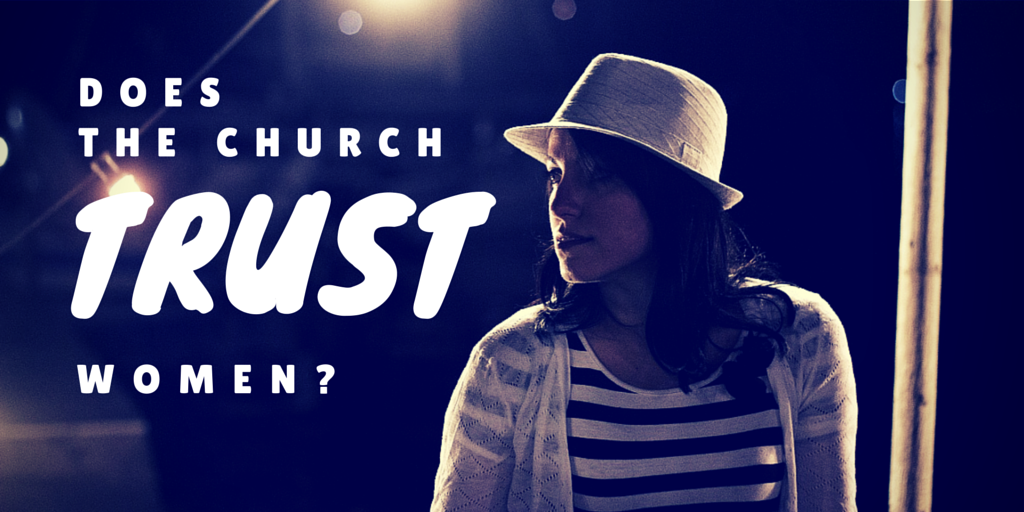Sunday was International Women’s Day, a day to celebrate the achievements of women around the world while calling for greater equality. It is not a day that many churches seem to highlight, but I think it raises the question: how well do we do with gender equality in our congregations?
A couple of days ago, I was chatting with a friend who had just returned from her church’s women’s retreat. Three of the church’s male pastors had led the attendees in a process of visioning. My friend was angry. Why weren’t any of the female pastors and leaders involved? Doesn’t the church trust the women to develop their own future vision?
Where are the Women?
I was surprised because this church prides itself on gender equality. Half the staff are women. Two out of five pastors are women, and the music leader is a woman. When it comes to decision-making about the church’s direction, however, male voices drown out the female ones.
Within any church, a lifetime of exposure to what we think women should be, how they should behave, and who they should represent drives and reinforces unconscious and unseen biases and actions.
We may no longer adhere to the theology that women cannot be leaders or equals, but it still unconsciously shapes our behavior. We perceive women as primarily nurturers, helpers, and peacemakers who are not good leadership material.
Women whose behavior contrasts these traditional stereotypes are likely to be looked down on by others. I still painfully remember comments about my being “more like a man than a woman” just because I was a physician and single. There were only two acceptable futures for me – marriage or missionary. I chose the missionary route and became a leader by default. There were no men around to vie for my position. In spite of that, it took a couple of years for my leadership to be officially recognized by the men in authority.
Unconscious Biases
Unconscious bias is particularly important. It arises from implicit assumptions and unspoken attitudes, beliefs, and expectations that we all have about others. These biases are particularly strong in churches where theology can be used to back them up. Unconsciously, our leaders are shaped by assumptions about what a leader looks like and how a leader acts. Those with “take charge,” aggressive personality traits are seen as having good leadership potential. They often receive more applause than those who prefer a more communal team leader approach. Not surprisingly, men are often seen as more capable leaders.
Even the social life of leadership teams can reinforce our stereotypes. Members bond over mugs of ale and the camaraderie of a shared football game. Ever heard of a church leadership group getting together round a cup of tea and knitting?
It is easy to dismiss such an idea as a joke because it does not fit our images of leadership interaction. However, would we dismiss it as quickly if we took the time to ask what our women leaders would prefer? It might even be beneficial for some of the males out there, too.
To overcome stereotypes and unconscious biases, we must be willing to address our immediate judgements and create practices and procedures to mitigate their potential effects.
Four Adjustments that Help Empower Women Leaders
So what can we do?
- Talk about it. Create safe environments for your leadership team to think about the roles of men and women in leadership.
- Do an audit. Which roles are held by women? Which are held by men? What are the discrepancies, and what could you do to address these? Discuss your perceptions of the Biblical viewpoint. How could this encourage or interfere with gender equality?
- Study the Bible. Do some biblical study on women in the Bible. Refute the myths about the inequality of women. Ask the question – what are the implications for our congregation?
- Educate your team and congregation on the purpose of leadership. Discuss how the personalities of male and female members on your team enhance and detract from the health of your church congregation.
- Change your practices. What is one way that your leadership team could change their interactions in order to more fully affirm the equality of women?
“Let’s Plant a V3 Church in my Neighborhood” Share on Facebook! Tweet This!
Share this Post

